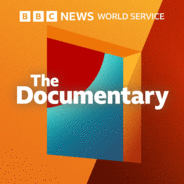
FeatureKultur & Gesellschaft
The Documentary Podcast Folgen
A window into our world, through in-depth storytelling from the BBC. Investigating, reporting and uncovering true stories from everywhere. Award-winning journalism, unheard voices, amazing culture and global issues. From China’s state-backed overseas spending, to on the road with Canada’s Sikh truckers, to the frontline of the climate emergency, we go beyond the headlines.Every week, we take you into the minds of the world's most creative people and explore personal approaches to spirituality. And we bring together people from around the globe to discuss how news stories are affecting their lives. A new episode most days, all year round. From our BBC World Service teams at: Assignment, Heart and Soul, In the Studio, OS Conversations and The Fifth Floor.
Folgen von The Documentary Podcast
-
Folge vom 09.11.2025The great hunger: Stalin's famine in KazakhstanFew people outside Kazakhstan know of the famine that destroyed nomadic life in the 1930s, and left more than a third of the population dead or displaced to China and far beyond. The famine, called Asharshylyk in Kazakh, was one of the most deadly man-made famines of the 20th Century; even more so, proportionately, than the much better known Holodomor in Ukraine during the same period. It resulted from the coming of Soviet power, the violent suppression of nomadism and forced settlement into disastrous collective farms. During the Soviet years, no one mentioned the Asharshylyk in public and its history was not at schools or universities. Rose Kudabayeva's grandparents didn't breathe a word to her about the Asharshylyk although they lived through the worst of it, losing several of their children. Now she travels through Kazakhstan trying to fill out the story, meeting archivists, writers, musicians, camel farmers, and her own relatives.This programme includes interviews that listeners may find upsetting, including some that refer to cannibalism, violent death and harm to children.
-
Folge vom 08.11.2025Does Kruger deserve a park?Kruger national park in South Africa is one of the most well known nature reserves in the world. But the legacy of Paul Kruger, who the park is named after, is complicated. He founded the park to protect South Africa's wildlife, but he is also considered to be a relic of the country's racist past and considered by some as an architect of apartheid. Khanyisile Ngcobo is a reporter for BBC Africa and she tells us more about the name change debate. Luiz Fernando Toledo BBC News Brazil tells the story of the successful conservation of the giant Amazon fish, the pirarucu. Its skin can be turned into leather, which is used to make high end fashion items. The fishermen who catch them do so in exchange for policing illegal fishing, which has pulled the fish numbers back from the brink of extinction. But despite their role in conservation, and providing the leather, these fishermen don't share in the economic benefits of this fish. Have you ever thought about the history of toothbrushes or dental hygiene? Tejas Vaidya of BBC Gujarati went to meet an Indian man who owns the world’s largest toothbrush collection.This episode of The Documentary comes to you from The Fifth Floor, the show at the heart of global storytelling, with BBC journalists from all around the world. Presented by Faranak Amidi. Produced by Caroline Ferguson, Rebecca Moore and Alice Gioia.This is an EcoAudio certified production. (Photo: Faranak Amidi. Credit: Tricia Yourkevich.)
-
Folge vom 08.11.2025Mamdani’s New YorkersImmigrant, Muslim and self-proclaimed democratic socialist, Zohran Mamdani is also, at 34, the city’s youngest mayor in a century. Famed for his charisma, and with millions of views on social media, the Democratic candidate campaigned on a platform that included reducing the cost of living, free childcare and new taxes for millionaires and corporations. In our conversations, we bring together three American Muslims who tell us why they believe Mamdani’s election is so important. In his victory speech, Mamdani made a point of thanking the voters he says have been left behind by the city, including immigrants. We hear from New Yorkers originally from Sierra Leone, Nepal and Columbia. And two friends, Brooke and Katherine, share the challenges they’ve experienced of living in one of the world’s most expensive cities.
-
Folge vom 07.11.2025Kai Höss: My grandfather, the Commandant of AuschwitzIn a cinema in south-west Germany an audience is gathered to watch an Oscar winning film, Zone of Interest, about the life of Rudolf Höss, Commandant of Auschwitz. Those present comprise Jewish people from around the world, and the special guest is Rudolf’s grandson. The topic was rarely visited during Kai's childhood. It was only after a school history lesson that Kai began to comprehend Rudolf’s role as head of the largest mass murder site in history. Reporter Shiroma Silva travels to his home in Germany to question Kai on his personal struggle. She tracks Kai’s outlook today through Christianity, in which he uses his past to look forward and understand the particular place of Jewish people in the Bible. He questions how antisemitism thrived in Christian societies and his grandfather’s early life in a devout Catholic family. This episode of The Documentary, comes to you from Heart and Soul, exploring personal approaches to spirituality from around the world
